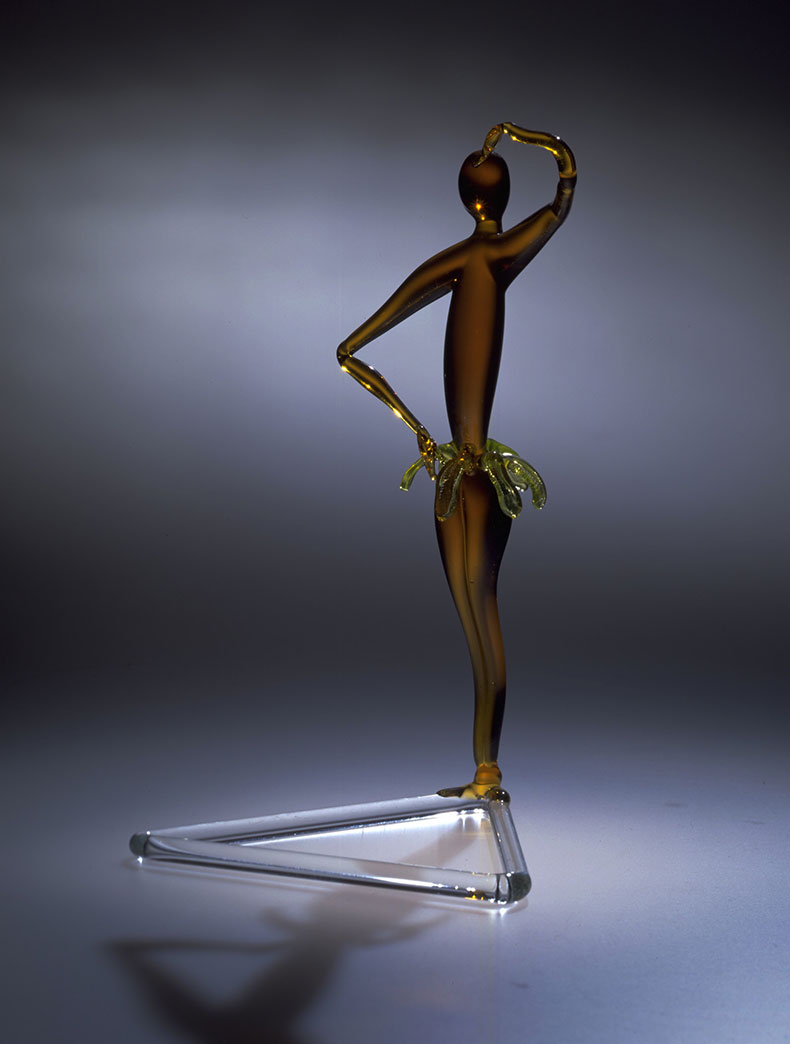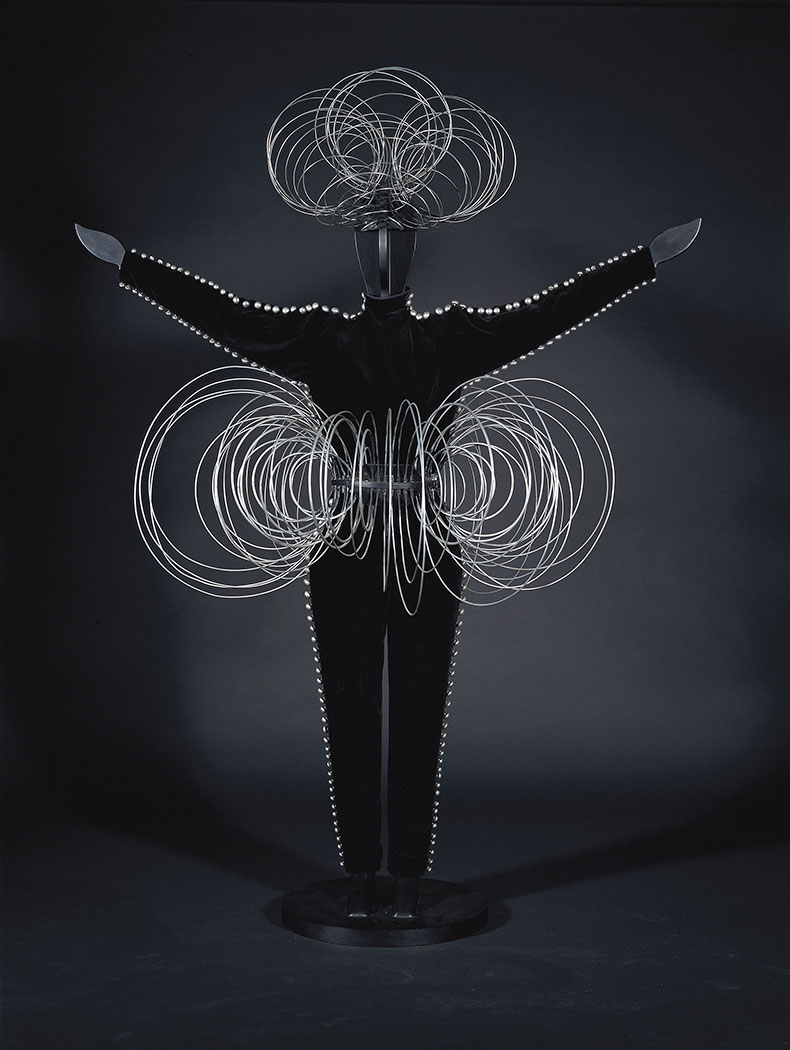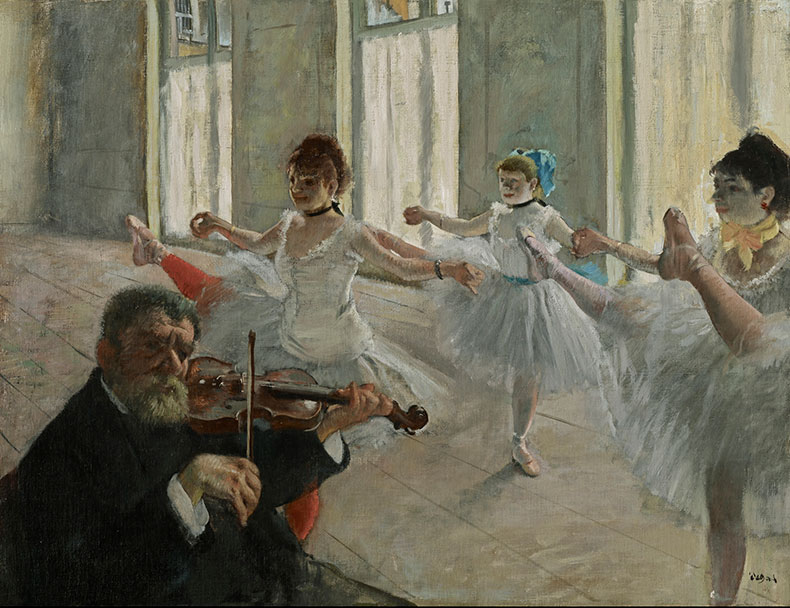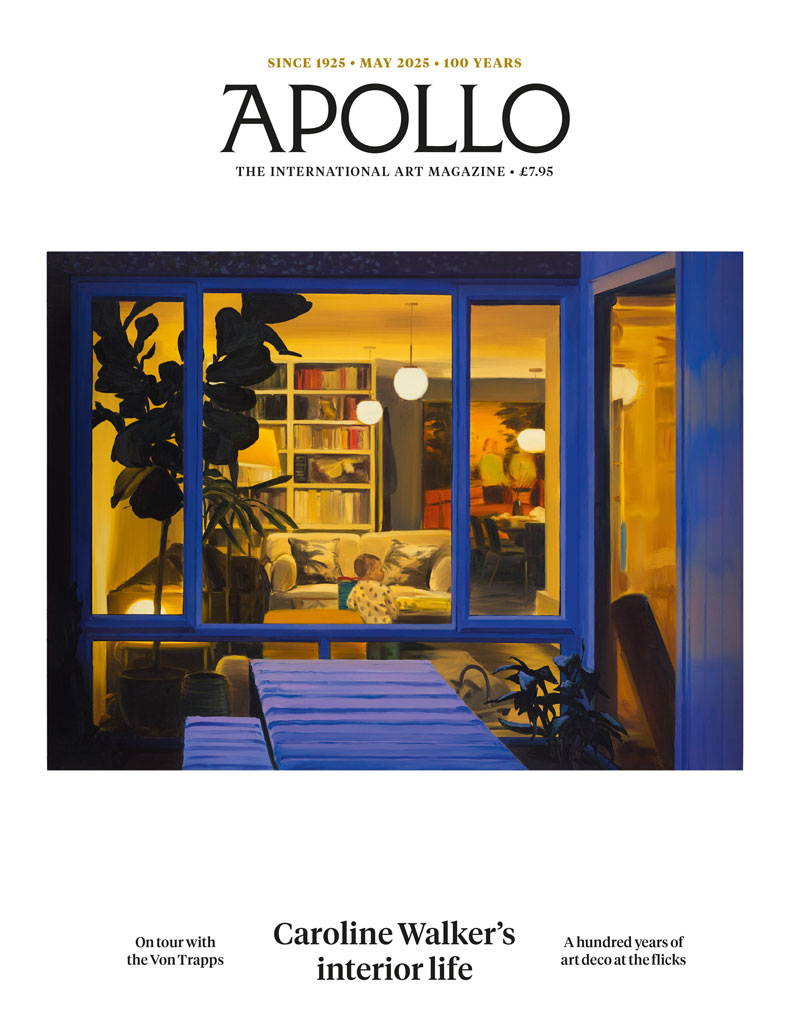 ‘4 things to see this week’ is sponsored by Bloomberg Connects, the free arts and culture app. Bloomberg Connects lets you access museums, galleries and cultural spaces around the world on demand. Download the app here to access digital guides and explore a variety of content.
‘4 things to see this week’ is sponsored by Bloomberg Connects, the free arts and culture app. Bloomberg Connects lets you access museums, galleries and cultural spaces around the world on demand. Download the app here to access digital guides and explore a variety of content.
Each week we bring you 4 of the most interesting objects from the world’s museums, galleries and art institutions hand-picked to mark significant moments in the calendar.
From Kandinsky’s abstractions of Gret Palucca’s expressive movements to the invitation Keith Haring designed for DJ Larry Levan’s birthday party at Paradise Garage, the world of dance has long provided inspiration for artists and designers. At the beginning of the 20th century figures such as Jean Cocteau and institutions like the Bauhaus actively encouraged this cross-pollination, resulting in a series of striking modernist posters, costumes and cutting-edge stage sets. Later collaborations between Noguchi and Martha Graham or between Merce Cunningham and Fluxus saw art and dance rushing to meet the postmodern age together. In 2014, Duncan Campbell won the Turner Prize with a video piece that included a dance sequence ‘inspired by Karl Marx’. For better or worse, TikTok has now started its own NFT platform.
In celebration of International Dance Day on 29 April, we have selected four objects that encapsulate the connections between art and dance over the centuries.

Shiva Nataraja (c. 1200). National Museum of Denmark, Copenhagen.
1. Shiva Nataraja
National Museum of Denmark, Copenhagen
This 12th-century bronze sculpture depicts the Hindu god Shiva in the ‘Nataraja’ position, or as ‘lord of the dance’. Encircled by fire, Shiva dances to manifest his panchakrityas – creation, preservation, destruction, veiling and grace – with one foot raised to denote the path of salvation. Click here to find out more.

Josephine Baker (c. 1925), Fritz Lampl. Photo: © Victoria and Albert Museum, London.
2. Glass figure of Josephine Baker (c. 1925), Fritz Lampl
Victoria and Albert Museum, London
When Josephine Baker took to the stage in Paris, she captured the hearts of artists as well as the public with her energetic dancing and banana skirt. The resistance fighter and civil rights activist went on to become the subject of innumerable tributes – many of which unfortunately rely on exoticising stereotypes – including this delicate glass figure by Fritz Lampl. Click here to find out more.

The Triadic Ballet: Wireframe (1922), Oskar Schlemmer.
3. The Triadic Ballet: Wireframe (1922), Oskar Schlemmer
Staatsgalerie Stuttgart
This weird and wonderful costume was designed by the Bauhaus artist Oskar Schlemmer for his Triadic Ballet. Schlemmer transformed the dancer’s bodies with his elaborate costumes which were intended to be ‘spatially sculptural’. Click here to find out more.

The Rehearsal (1878–79), Edgar Degas. Frick Collection, New York. Photo: Michael Bodycomb
4. The Rehearsal (1878–79), Edgar Degas
Frick Collection, New York
Over the course of his career Degas painted, sketched and sculpted ballerinas more than 1,000 times. This painting depicts a typical rehearsal scene, its muted palette delightfully offset by a flash of orange tights. Click here to find out more on the Bloomberg Connects app.
Download now
![]() ‘4 things to see this week’ is sponsored by Bloomberg Connects, the free arts and culture app. Bloomberg Connects lets you access museums, galleries and cultural spaces around the world on demand. Download the app here to access digital guides and explore a variety of content or scan the QR code.
‘4 things to see this week’ is sponsored by Bloomberg Connects, the free arts and culture app. Bloomberg Connects lets you access museums, galleries and cultural spaces around the world on demand. Download the app here to access digital guides and explore a variety of content or scan the QR code.













![Masterpiece [Re]discovery 2022. Photo: Ben Fisher Photography, courtesy of Masterpiece London](http://zephr.apollo-magazine.com/wp-content/uploads/2022/07/MPL2022_4263.jpg)
Suzanne Valadon’s shifting gaze